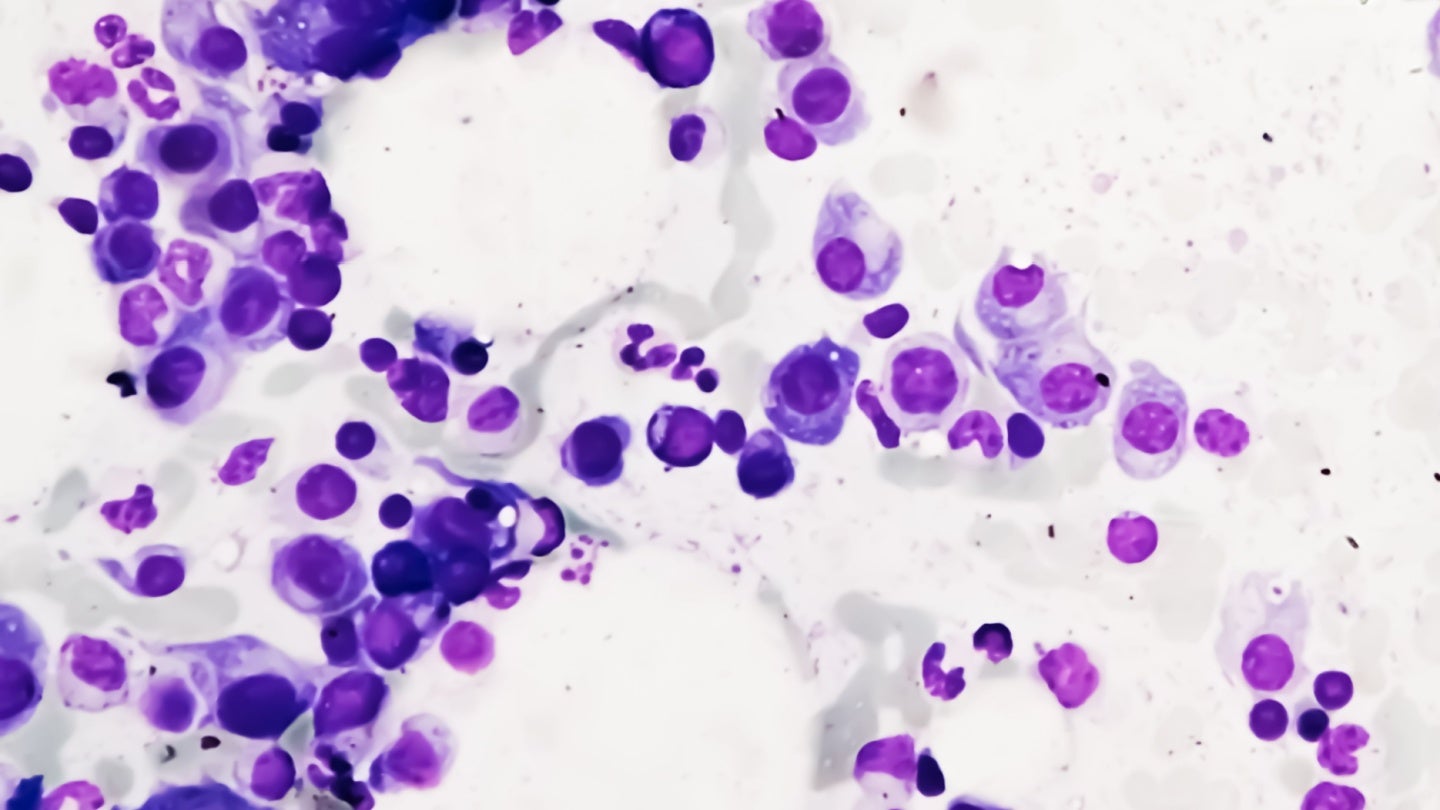New Lung Cancer Test Outperforms Traditional Methods in Predicting Early-Stage Survival
A groundbreaking development in cancer diagnostics has emerged from the collaborative research conducted at the Francis Crick Institute and the UCL Cancer Institute. A novel test named ORACLE has demonstrated exceptional abilities in predicting lung cancer survival from the point of diagnosis, outshining the existing clinical risk factors that currently guide treatment decisions. This advancement […]


A groundbreaking development in cancer diagnostics has emerged from the collaborative research conducted at the Francis Crick Institute and the UCL Cancer Institute. A novel test named ORACLE has demonstrated exceptional abilities in predicting lung cancer survival from the point of diagnosis, outshining the existing clinical risk factors that currently guide treatment decisions. This advancement is particularly significant for early-stage lung cancer patients, where timely intervention could be pivotal in improving outcomes and reducing recurrence risks.
Historically, lung cancer has presented a daunting challenge for both patients and healthcare providers, largely due to the complexity of its biological markers. Among various treatment strategies, accurate predictions regarding cancer progression and response to therapies have remained elusive. However, ORACLE has been identified as a promising tool that not only predicts survival but also stratifies patients based on their risk profiles. It enables clinicians to discern which patients might gain from intensified treatment options, such as chemotherapy, alongside surgical interventions.
The research, funded by Cancer Research UK and published in the prestigious journal Nature Cancer, examined a cohort of 158 lung cancer patients as a part of the TRACERx study. The findings revealed that ORACLE surpassed traditional clinical assessments, including tumor staging, in effectively predicting patient survival outcomes. This validation marks a significant stride towards personalized medicine, which prioritizes tailored treatment approaches based on individual risk factors.
Delving deeper into the mechanics of the ORACLE test, its innovative design addresses a fundamental issue in cancer diagnostics – the inadequacy of standard tissue sampling. During biopsy procedures, medical practitioners typically obtain only a fraction, often less than 1%, of a tumor’s total genetic material. As cancer cells can exhibit substantial genetic diversity within the tumor, this limitation poses challenges. ORACLE mitigates this by analyzing the expression of a comprehensive set of genes across the entirety of the tumor, achieving a holistic understanding of its characteristics.
Of particular interest is the test’s ability to differentiate patients with stage 1 lung cancer who have a significantly lower survival probability. For a subset of these patients, the test could indicate a favorable response to chemotherapy, thereby allowing for earlier and more aggressive treatment protocols. An estimated 25% of stage 1 lung cancer patients experience cancer recurrence, underscoring the urgency of identifying those who would benefit from enhanced surveillance or chemotherapy.
Notably, the researchers established a correlation between high ORACLE risk scores and tumor regions likely to metastasize, providing crucial insights into cancer spread. This association presents an opportunity for clinicians to tailor follow-up strategies and post-operative interventions based on individual risk assessments, potentially improving long-term patient prognoses.
Moreover, the research team scrutinized the efficacy of 359 existing and investigational lung cancer therapies in the context of ORACLE risk scores. The findings indicated that high-risk patients exhibited a better response to certain chemotherapy agents, particularly platinum-based drugs, including cisplatin. This response is linked to the chromosomal instability identified in those high-risk regions, which occurs when DNA within cancer cells is prone to erroneous replication and fragmentation, a phenomenon that platinum drugs are known to target effectively.
The promise of ORACLE extends beyond just survival predictions; it encompasses a broader framework of understanding how lung cancer behaves at the molecular level. By integrating insights gleaned from evolutionary biology and genome instability, researchers aim to refine cancer treatment strategies that resonate with the biological intricacies of individual tumors. This transformative approach could reshape the landscape of lung cancer treatment and prognostication.
In concluding the study, Dhruva Biswas, a key researcher, articulated the profound implications of ORACLE, stressing its potential to revolutionize clinical decision-making in early-stage lung cancer management. If validated through rigorous testing in larger patient cohorts, ORACLE could provide clinicians with an invaluable resource to optimize treatment pathways, thereby enhancing patient quality of life and prolonging survival rates.
The journey for ORACLE does not end with these promising results; researchers are now poised to embark on further investigations that will juxtapose high-risk patients receiving standard care against those undergoing intensified treatment protocols. This next phase of research will be crucial in establishing the real-world efficacy of ORACLE in improving treatment outcomes for lung cancer patients, particularly at its nascent stage.
As the scientific community continues to address the challenges posed by lung cancer, the developments surrounding ORACLE signal a hopeful trajectory in the fight against this pervasive disease. With a concerted effort to implement this diagnostic tool into routine clinical practice, there lies the potential to significantly alter the current standards of care, ultimately steering closer to the promise of personalized medicine.
In summary, ORACLE stands as a beacon of innovation in cancer diagnostics, granting healthcare professionals a sophisticated tool to enhance prognostic accuracy and therapeutic decision-making. The cooperative endeavor by researchers at prestigious institutions demonstrates a commitment to unraveling the complexities of lung cancer and improving outcomes for patients worldwide.
Subject of Research: Lung cancer survival predictions
Article Title: Prospective validation of ORACLE, a clonal expression biomarker associated with survival of patients with lung adenocarcinoma.
News Publication Date: 9-Jan-2025
Web References: Nature Cancer
References: Biswas, D and Liu, YH. et al. (2025). Nature Cancer. 10.1038/s43018-024-00883-1.
Image Credits: Not specified.
Keywords: Lung cancer, Chemotherapy, Cancer risk, Cancer research, Lung tumors.
What's Your Reaction?

































